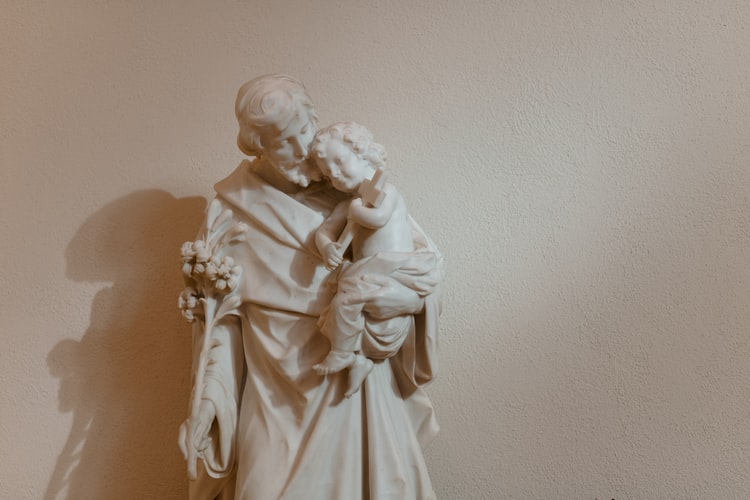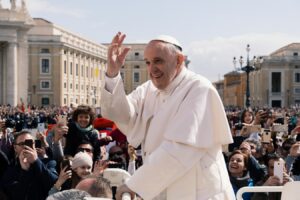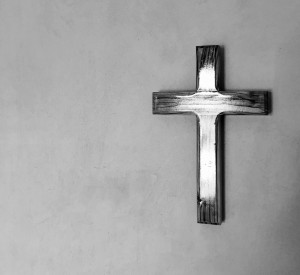Saint Joseph’s Heart By Fr. Dennis Paez, SDB
We know him by name but know very little about him. All the evangelists mentioned him even if they probably had never met him. And when Jesus was an adult, people referred to Him as his son, attesting the closeness they had. So it’s high time we get to know Saint Joseph, this remarkable man whom heaven trusts.
The aim of Pope Francis in making 2021 as the Year of Saint Joseph and writing his apostolic letter titled Patris Corde is, first, to encourage us to implore his intercession and, second, to imitate his virtues and his zeal. In that way, we increase our love for this great saint.
Patris Corde means “With a father’s heart.” The Pope describes what kind of a father Joseph is and how He loved Jesus. Hopefully after this, we will be more encouraged to accept Joseph in our lives, the way we accept the Blessed Mother. Let’s get to know Jesus’ foster father through seven characteristics the Pope mentions in his letter.
First, Joseph is an accepting father.
We are all aware of the circumstances of the marriage of Joseph and Mary. Mary was found with child and Joseph was betrothed to her while the child was not his. The Law of Moses says that when a woman gets pregnant out of wedlock, she should be denounced and stoned to death to rid Israel of this abomination. As a righteous Jew, Joseph had to follow the Law. He was in a terrible dilemma.
The Pope tells us, “Joseph accepted Mary unconditionally. The nobility of his heart is that what he learned from the Law, he made dependent on charity.” He was obedient to the Law, but then he realized he had to be more obedient to the Law Giver. Now we know why later on, Jesus insisted that “the Sabbath was made for man, not man for the
Sabbath.”
The Pope also tells us, “The spiritual path that Joseph traces for us is not one that explains, but accepts.” We accept our history, not try to analyze or find the logic in it.
It’s not a matter of doing the right thing, but of doing the loving thing. It might not be easy. It might not be comfortable, but it can never be wrong. That’s what Joseph chose: love as the greatest duty.
The Pope tells us, “Only the Lord can give us the strength needed to accept life as it is with all its contradictions, frustrations, and disappointments.” Only God can give us the grace to accept what seems impossible to do so.
Second, he is an obedient father.
In every situation, Joseph declared his own fiat. He had his own annunciation. He and Mary were so synchronized to the Divine Will.
Through four dreams, God revealed His will to Joseph. In the first dream, the angel told him, “Don’t be afraid to take Mary as your wife, for the child conceived in her is from the Holy Spirit” (Matthew 1:20-21). Joseph’s response: “He did as the angel of the Lord commanded him” (Matthew 1:24). Joseph didn’t hesitate, didn’t go to a retreat first, didn’t ask for second opinion. He did what the angel said.
The second dream was when the angel told him, “Get up, take the child and his mother and flee to Egypt, and remain there until I tell you; for Herod is about to search for the child, and destroy him” (Matthew 2:13). Joseph’s response: “He got up and took the child and his mother that very night.” He didn’t complain about moving again. He uprooted himself and his family to go to a strange land, find a job, and find a place to stay. It’s like Bethlehem all over again.
In the third dream, the message was, “Take the child and his mother, and return to the Land of Israel.” Just when the family was already settled in Egypt, probably they already had friends, Joseph had a job, they were safe, Jesus already knew how to speak Egyptian, they were asked to move again. But Joseph’s response was: “He got up, took the child and his mother, and went to the land of Israel” (Matthew 2:21).
Joseph did not bargain, did not propose an alternative plan. We do not know anything that he said all the while. He was a man of few words and a lot of action as regards following God’s will.
“When he heard that Archealaus was reigning in Judea in place of his father Herod, he was afraid to go there. Having been warned in a dream, [Joseph’s response:] he withdrew to the district of Galilee” (Matthew 2:22). This is the fourth dream and Joseph
took action again. There was always a swiftness in his response to the Divine Will. Pope Francis popularized the statue of the Sleeping Joseph. I think it’s more of the dreaming
Saint Joseph—the Joseph that was communicating with God. I also think the better title for this is the obedient Joseph.
I saw a video of a son who asked his foster father if he was willing to adopt him. The foster father broke down and between sobs answered, “Absolutely.” In the same way, when God asked Joseph, “Will you be legally the father of My Son?” Joseph answered, “Absolutely.”
“Amid the tempest of life,” the Pope tells us, “we must never be afraid to let the Lord steer our course.” Our answer to God’s will is “Absolutely!”
Third, Joseph is a beloved father.
The Pope said, “Joseph turned his human vocation to domestic love into a superhuman oblation of himself, his heart, and all his abilities, placed at the service of the Messiah.”
Jesus is the biological son of Mary so He probably looked like the Blessed Mother. Jesus did not look like the average Arab. But if Jesus looked like Mary, He acted exactly like Joseph. The way He walked, sat, spoke, laughed, and manly virtues were all from Joseph. Joseph was not just a supporting actor. He was necessary for Jesus to become a whole person.
Sometimes, we feel inadequate to follow the plan of God and His mission for us. The Pope tells us, “We think that God works only through our better parts, yet most of his plans are realized in and despite our frailty.”
The World Health Organization (WHO) statistics show that 81% of teen pregnancies, 80% of kids in the streets, 71% of people in jail, and 41% of families that are extremely poor are all fatherless. The quiet presence of fathers make a big difference. Though these fathers “appear hidden in the shadows, they can play an incomparable role in the history of salvation like Joseph did,” the Pope asserts.
“Each of us can discover in Joseph the man who goes unnoticed, a daily, discreet and hidden presence—in times of trouble,” the Pope further says.
Fourth, he is a tender and loving father.
Jesus, the Second Person of the Blessed Trinity, the Son of God, would experience what a human father is in the person of Joseph.
“Only one man in the history of the world was chosen by the eternal Father to be His visible Face to the Incarnate son,” the Pope said. Of all the men that would be born in this world, God felt that it was Joseph who could best represent Him to His Son.
Children are vulnerable and impressionable; what they see and what they hear sticks to them. So they’re open to the truth, but they’re also susceptible to lies.
So when children are wounded by a father, Satan immediately seizes this opportunity to fix in the child’s mind an image of God the father who is mean, cruel, and punitive. The devil takes any opportunity to discredit God.
Sigmund Freud, founder of psychotherapy, believes there is a correlation between people who are avowed atheists and their traumatic experience of their fathers. The source of much angst and evil in this world is caused by the absence of a father.
We need another father to repair the damage and restore to us our inheritance as beloved sons and daughters. We need to experience again the closeness and loving protection of a father.
Pope Francis said, “More than ever, we need to turn to St. Joseph, the icon of the Father of mercies.” Saint Joseph is not only a model for fathers or an intercessor for fatherhood. We can experience from him the fatherhood of God Himself in the same way Jesus did.
Fifth, he is a creatively courageous father
Pope Francis said, “The Holy Family faced concrete problems like so many of our migrant brothers and sisters who risk their lives to escape misfortune and hunger,” the Pope said.
This is why the Pope considers Saint Joseph “the special patron of all those forced to leave their native lands because of war, hatred, persecution, and poverty.” Joseph understands what that’s all about, having experienced the same in his own family. The Pope urges us to see in every mother and child the Child Jesus and His mother, Mary, and come to their aid as Joseph did.
Sixth, he is a working father.
Angels didn’t come to give the Holy Family their daily sustenance. Joseph had to work to provide for his family. From him, “Jesus learned the value, the dignity, and the joy of what it means to eat bread that is the fruit of one’s own labor.”
How many times was Jesus tempted to abandon his mission or do it His own way, and yet He never wavered either in the purpose nor in the way He was to accomplish salvation? He learned from His father to persevere and focus on His mission.
Seventh, he is a father in the shadows.
What does it mean to be a father in the shadows?
Joseph was comfortable to be in the background. The Pope wrote, “Our world today needs fathers. It has no use for tyrants who would domineer others as a means of compensating for their own needs.” The Pope encourages “a father who realizes that he is most a father and educator at the point when he becomes ‘useless,’ when he sees that his child has become independent and can walk the paths of life unaccompanied.” We have enough of people in leadership who consider grandstanding as part of their right. We need fathers who are secure enough to be insecure.
In summary, Saint Joseph is:
• an accepting father in order to protect purity
in the world;
• an obedient father to champion God’s will
in our lives;
• a beloved father to bring back fatherhood
into our families and society;
• a tender and loving father to repair our
broken homes;
• a creatively courageous father to protect the
Church;
• a working father to sanctify our mission
here on earth; and
• a father in the shadows to reconnect us to
God our loving Father.
“We need to ask for the grace of graces and that is the grace of our conversion,” urges the Pope. In every crucial moment in the history of the Church and mankind, the Church has always proposed Saint Joseph as a sure guide and protector. Again in our times, by dedicating 2021 to Saint Joseph and accompanying it with the apostolic letter, the Church is inviting us to have recourse to him for our transformation and that of the world.
Let us now pray this prayer that the Pope himself composed.
Hail, Guardian of the Redeemer,
Spouse of the Blessed Virgin Mary.
To you God entrusted His only Son;
in you Mary placed her trust;
with you Christ became man.
Blessed Joseph, to us, too,
show yourself a father
and guide us in the path of life.
Obtain for us grace, mercy, and courage,
and defend us from every evil.
Amen.
Suggested reflections and activities
Reflecting on our own personal experience of fatherhood will compel us to go to Saint Joseph and find in him an experience of fatherhood that could change our lives and heal the world.
- How do you describe your father in one word? Why?
- In what ways are you similar to your dad? Name two qualities you have that you feel came from your father.
- Set aside some free time to write an honest letter to your dad. Don’t think about the grammar; just write. Sign it with your name. You don’t have to send it to your father. After reading it, you can shred or crumple it and throw it away. It’s not for him; it’s for you. What’s important is you pour out your feelings there. May this be a way to repair and heal your wounds and eventually your relationships.
*This excerpt is taken from Feast Magazine June 2021 issue*
Grab your e-copy here.

Featured image is from Unsplash.com.



